Sliding Garden Doors: Everything You Need to Know
Table of Contents
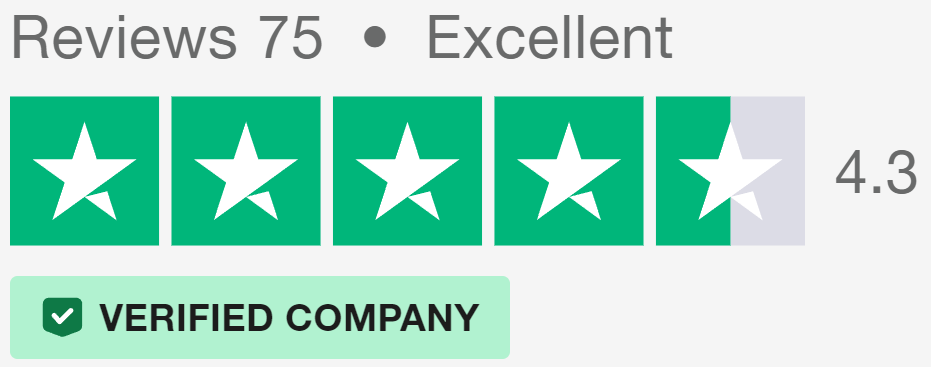
What Are Sliding Garden Doors?
Garden sliding doors bridge the gap between indoor living spaces and outdoor areas. These exterior garden doors feature large glass panels that glide horizontally on tracks, providing easy garden access without the space requirements of traditional hinged doors.
Types of Sliding Garden Doors
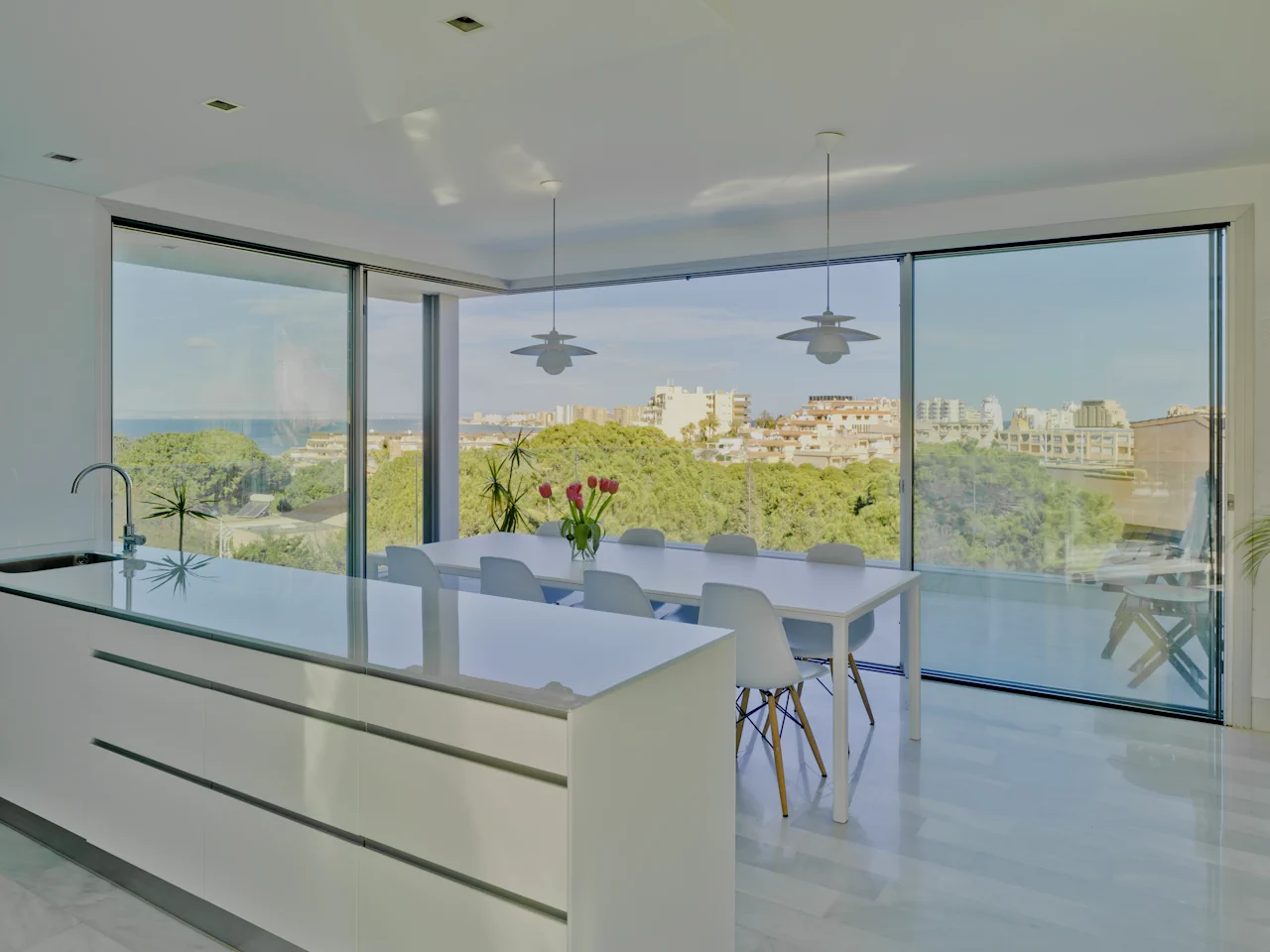
Garden patio doors come in various styles to suit different homes. Standard sliding doors typically have two or more panels, with at least one that moves past the others. They’re well-suited for smaller openings, offering a straightforward way to connect living areas with outdoor spaces.
For those wanting wider openings, lift-and-slide systems present an impressive option. These doors employ a mechanism that slightly elevates the panel when opened, reducing friction for smoother operation. This design works particularly well for larger, heavier garden room sliding doors that might be challenging to move with standard sliding mechanisms.
Pocket doors offer an innovative take on sliding garden doors. When open, these panels retreat completely into a wall cavity, vanishing from sight. This design maximizes the connection between home and garden, creating an unobstructed view. However, pocket doors need specific wall construction to house the sliding panels, making them more suitable for new builds or major renovations.
Frame Materials and Their Impact
Frame material choice influences the look, durability, and performance of garden sliding doors. Aluminium frames are valued for their strength and slim profiles, allowing for larger glass areas that maximise natural light. They resist corrosion and need little upkeep, making them a practical choice for many homeowners.
Timber frames provide a natural, warm aesthetic that appeals to those seeking a more traditional look. Wood can be painted or stained to complement your home’s style and offers good insulation. However, timber requires regular care to protect it from weather damage and prevent warping or rotting.
For a balance of affordability and low maintenance, uPVC frames deserve consideration. These plastic frames withstand weathering well and don’t need painting. While they may not offer the same slim profiles as aluminium, recent advances in uPVC technology have improved both their appearance and performance.
Glass Options
Double glazing, with two panes of glass separated by a gap, is standard in most modern doors. This setup provides effective insulation and noise reduction. For even better thermal performance, triple glazing adds a third pane, further minimizing heat loss and outside noise.
Low-emissivity (low-E) glass coatings can boost energy efficiency by reflecting heat back into your home during cold months while reducing heat gain in summer. Some manufacturers also offer self-cleaning glass, which uses a special coating to break down dirt, easing maintenance.
Benefits of Sliding Garden Doors
Fresh Air and Natural Light
One of the most striking benefits of sliding doors for garden rooms is the abundance of natural light they allow into your home. The large glass panels act as windows, brightening interior spaces and creating a sense of openness. This influx of daylight can make rooms feel larger and more inviting, potentially reducing the need for artificial lighting during daylight hours.
In the UK’s often overcast climate, maximising natural light is particularly valuable. Garden patio doors can help combat the gloom of grey days, bringing a touch of the outdoors inside even when the weather isn’t cooperating. This connection with natural light cycles can also positively impact your mood and well-being.
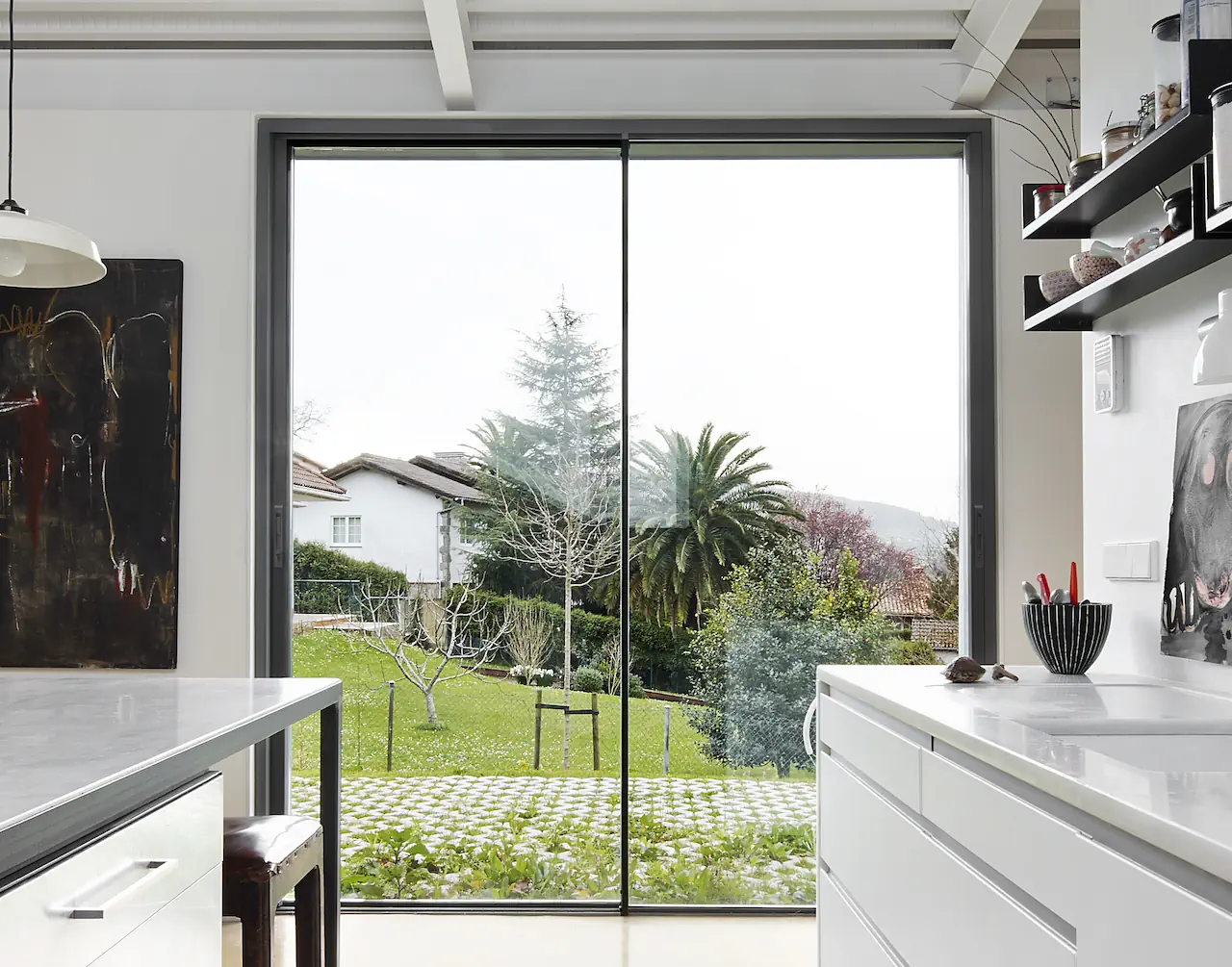
Space-Saving Design
Unlike traditional hinged doors, exterior garden doors that slide don’t require swing space to open. This space-saving feature is particularly beneficial in smaller homes or in areas where furniture placement is challenging. You can position items closer to the door without worrying about obstructing its operation.
The efficient use of space extends to your outdoor area as well. Garden room sliding glass doors allow you to make the most of your patio or deck, as you don’t need to account for a door’s swing radius when arranging outdoor furniture or planning landscaping.
Access to Outdoor Areas
Sliding garden doors create a wide opening between your home and garden, encouraging a fluid movement between these spaces. This easy access can change how you use your outdoor area, making it feel like an extension of your indoor living space.
During warmer months, you can easily open up your home for barbecues or garden parties. The wide aperture allows for easy movement of people and furniture, making outdoor entertaining a breeze. Even in cooler weather, the large glass panels of garden sliding doors maintain a visual connection with your garden, allowing you to enjoy the changing seasons from the comfort of your home.
Flexible Views and Ventilation
The ability to partially open sliding doors offers flexible ventilation options. On mild days, you can create a gentle airflow without fully exposing your interior to the elements.
When fully closed, the expansive glass of garden patio doors frames your outdoor space like a living picture. This constant visual connection with nature can create a calming atmosphere in your home, bringing a touch of the outdoors inside regardless of the weather.
Choosing the Right Sliding Doors
Measuring and Sizing
Accurate measurements are very important when fitting sliding doors for garden rooms. The size of your opening determines the type of door system you can install. Large openings might suit a multi-panel system, while smaller spaces might be better served by a simple two-panel arrangement.
When measuring, account for the frame and any additional features like blinds or insect screens. It’s wise to have a professional take final measurements to ensure a perfect fit. Remember, ill-fitting doors can lead to draughts and reduced energy efficiency.
British weather can be unpredictable, so consider how your doors will perform in various conditions. Larger doors might offer stunning views but could be more challenging to operate in windy weather. Balancing aesthetics with practicality is key.
Matching Your Home’s Style
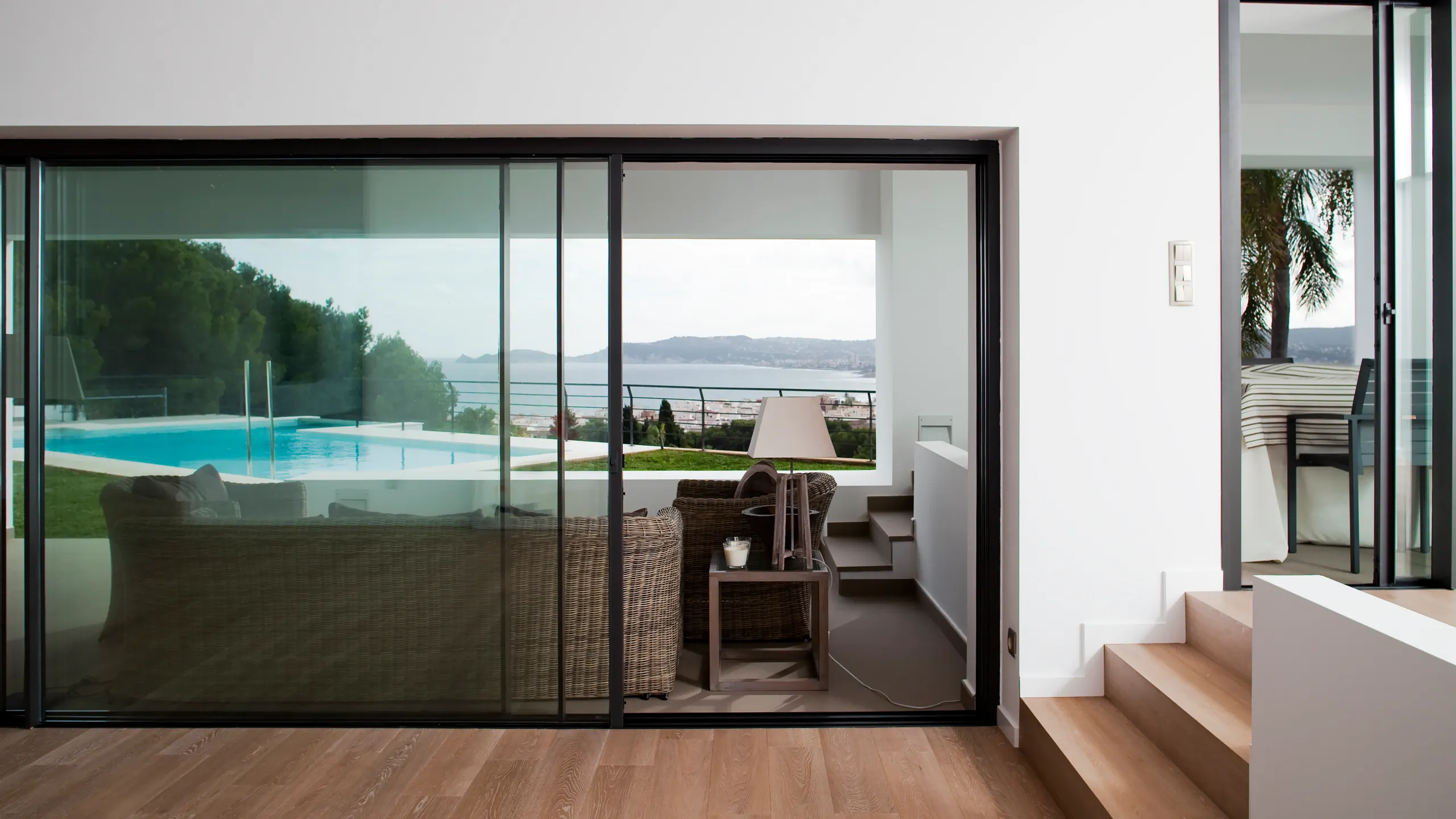
Garden patio doors should complement your home’s architectural style. Modern homes often pair well with slim-framed aluminium sliding doors, while period properties might benefit from the warmth of timber frames.
Consider your interior decor as well; the doors will be visible from inside, so they should harmonise with your indoor aesthetic. Colour is an important factor – many manufacturers offer a range of frame colours to match or contrast with your home’s palette.
Don’t overlook the hardware. Handles, locks, and other fittings contribute to the overall look of your doors. Choose options that align with other door and window hardware in your home for a cohesive appearance.
Weather
Look for doors with good insulation properties to keep your home warm in winter and cool in summer. The energy efficiency of sliding garden doors is measured by their U-value – the lower the U-value, the better the insulation.
Consider the direction your doors will face – south-facing doors might benefit from solar control glass to prevent overheating in summer, while north-facing doors might prioritise heat retention.
Ease of Operation
The smooth operation of garden sliding doors can greatly impact your day-to-day life. Test the sliding mechanism before purchase – it should move easily without sticking or requiring excessive force.
For larger or heavier doors, consider lift-and-slide systems. These raise the door slightly when opened, reducing friction and making them easier to operate. This can be particularly useful for elderly users or those with mobility issues.
Some systems offer soft-close mechanisms, similar to those found in kitchen cabinets. These prevent the doors from slamming, adding an extra layer of safety and refinement to your home.
Energy Efficiency
Energy efficiency is a top priority for many British homeowners, given the rising cost of heating and the growing awareness of environmental issues. Garden sliding doors, when chosen wisely, can play a crucial role in maintaining your home’s thermal comfort and reducing energy bills.
Understanding U-Values
U-values are a key measure of a door’s insulating properties. This value indicates how easily heat passes through the door – the lower the U-value, the better the insulation. For glass living room doors, U-values typically range from 1.4 to 1.8 W/m²K.
High-performance doors can achieve U-values as low as 0.8 W/m²K, rivalling the insulation of solid walls. When comparing options, pay attention to the overall door U-value, not just the centre-pane value, as frames can massively affect performance.
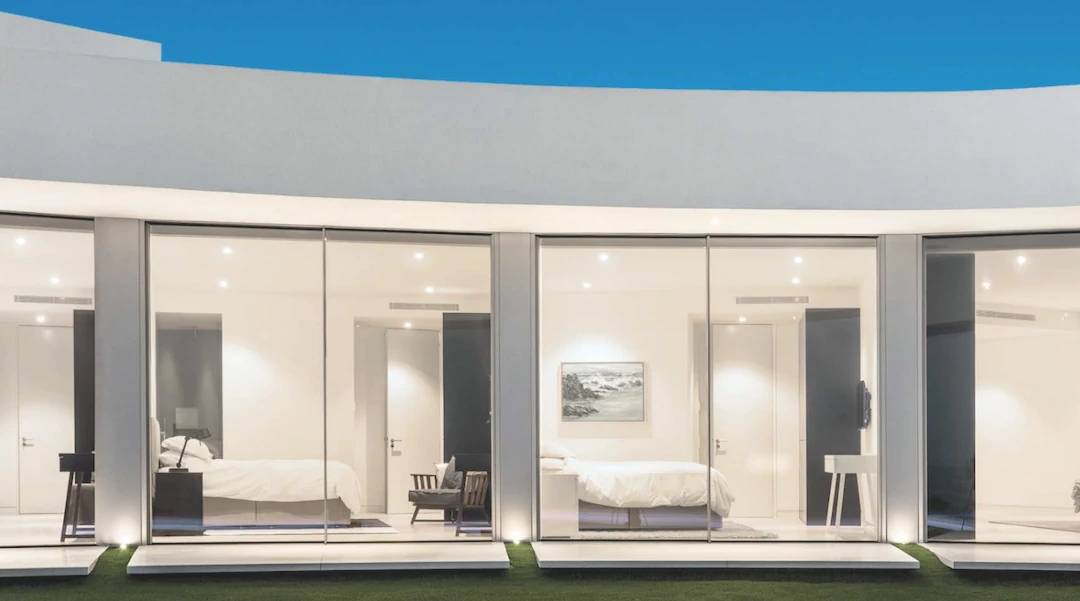
Glazing Options
Double glazing is the standard for garden patio doors in the UK, offering a good balance of insulation and cost-effectiveness. However, triple glazing is becoming increasingly popular, especially in colder regions or for north-facing installations.
Triple glazing can reduce heat loss by up to 50% compared to standard double glazing. While it comes at a higher initial cost, the long-term energy savings and improved comfort can make it a worthwhile investment.
Low-emissivity (low-E) coatings on the glass can further improve thermal performance. These invisible coatings reflect heat back into the room, reducing heat loss in winter and heat gain in summer.
Frame Materials and Thermal Breaks
The choice of frame material affects not only the look of your exterior garden doors but also their thermal performance. uPVC frames are known for their good insulation properties and are a popular choice for budget-conscious homeowners.
Aluminium frames, while sleek and durable, can conduct heat more readily. However, modern aluminium sliding doors incorporate thermal breaks – insulating barriers within the frame that reduce heat transfer.
Timber frames offer natural insulation and can achieve excellent U-values. They require more maintenance than uPVC or aluminium but are prized for their classic appearance and eco-friendly credentials.
Weatherstripping and Seals
The quality of weatherstripping and seals around sliding garden doors is crucial for preventing draughts and maintaining energy efficiency. Look for doors with robust, durable seals that maintain their effectiveness over time.
Multi-point locking systems not only improve security but also help to compress the seals evenly around the door, ensuring a tight fit. This is particularly important for larger doors, which might otherwise be prone to warping or misalignment.
Solar Gain Management
While reducing heat loss is important in the UK climate, managing solar gain is also key, especially for south-facing installations. Solar control glass can help prevent overheating in summer without reducing light transmission much.
Some advanced glazing options offer dynamic solar control, changing their properties in response to sunlight intensity. While costly, these can provide optimal comfort year-round without the need for additional shading devices.
Security Features
Keeping your home safe is paramount, and garden sliding doors must offer robust protection without compromising on style or ease of use. Modern sliding door systems come with a range of security features designed to deter intruders and provide peace of mind.
Locking Systems
Multi-point locking mechanisms are now standard on high-quality sliding garden doors. These systems secure the door at several points along the frame, making it much harder for intruders to force entry. Look for doors with at least a three-point locking system, though some premium models offer up to five-point locking for extra security.
Hook locks are particularly effective for sliding doors. These hooks engage with the frame when the door is locked, resisting attempts to lift the door off its tracks – a common weak point in older sliding door designs.
Glass Strength
The large glass panels in garden patio doors could be seen as a potential security weakness, but modern glazing technology has addressed this concern. Toughened safety glass is now standard in most sliding doors. This glass is heat-treated to make it much stronger than regular glass and, if broken, it shatters into small, blunt pieces rather than dangerous shards.
For even greater security, consider laminated glass. This consists of two or more sheets of glass bonded together with a layer of tough plastic between them. Even if the glass is cracked, it holds together, making it extremely difficult for an intruder to break through.
Anti-Lift Devices
Older sliding doors were vulnerable to being lifted off their tracks, but modern designs incorporate anti-lift devices to prevent this. These mechanisms ensure the door cannot be removed from the outside when in the closed position, adding an extra layer of security.
Additional Security Measures
Many homeowners opt for additional security features for their sliding garden doors. These can include:
- Security sensors that connect to your home alarm system
- Reinforced frames, particularly important for uPVC doors
- Security film applied to the glass, which helps hold shattered glass in place
- Key-operated locks on both sides of the door, allowing you to secure it even when you’re inside
Certification Standards
When choosing sliding doors for garden rooms, look for products that meet recognised security standards. In the UK, PAS 24 is a key certification to look out for. Doors that meet this standard have undergone rigorous testing to ensure they can resist common burglary methods.
The Secured by Design initiative, a UK police project, also provides certification for doors that meet high security standards. Choosing doors with this accreditation can provide additional reassurance and may even help reduce your home insurance premiums.
Remember, while these security features are important, they should not make your doors difficult to use or compromise their appearance. The best sliding garden doors balance security with aesthetics and functionality, ensuring your home is both safe and enjoyable to live in.
Frequently Asked Questions
What's the difference between sliding and bifold doors?
Sliding patio doors and bi-fold doors operate differently, each offering unique benefits. Sliding exterior doors typically feature two or more panels, with at least one sliding horizontally along a track. They provide a wide, unobstructed view when closed and allow for partial opening. Modern bifold doors, in contrast, fold back in sections, accordion-style, potentially opening up an entire wall. While bi-folds offer maximum opening width, they require more clearance space when fully open. Sliding doors often boast slim sightlines, maximising views, whereas bi-folds may have more visible frame sections when closed. Your choice between the two will depend on your space, desired aesthetics, and intended use.
Can sliding garden doors be locked from both sides?
Most sliding patio doors can indeed be locked from both sides, improving security and convenience. Modern systems often come with multi-point locking mechanisms that secure the door at several points along the frame, operable from both interior and exterior. For added security, consider doors with key-operated locks on both sides, allowing you to secure the door even when inside. Some systems also offer automatic locking features, engaging as soon as the door is closed. While dual-side locking is valuable, it’s just one aspect of door security. Consider the overall build quality, glass strength, and additional security features when choosing your sliding exterior doors.
What's the best material for sliding garden door frames?
The ideal material for sliding garden door frames depends on your specific needs, budget, and aesthetic preferences. Aluminium doors offer strength, durability, and slim sightlines. They’re low-maintenance and available in various colours, making aluminium patio doors ideal for modern homes and large openings. uPVC is cost-effective and low-maintenance, providing good insulation but often with thicker frames than aluminium. Timber offers natural beauty and excellent insulation, requiring more maintenance but perfect for traditional properties. Composite frames combine the strength of aluminium with the insulation properties of uPVC or timber, offering a good all-round choice. For a contemporary look with maximum glass area, ultra slim sliding doors in aluminium are often preferred. Consider factors like energy efficiency, maintenance requirements, and your home’s style when deciding.
How wide can sliding garden doors be?
Large sliding glass patio doors can span impressive widths, with some systems covering openings up to 18 meters wide or more. The maximum width depends on the door system, frame material, and glass specifications. Doors with aluminium frames typically achieve larger spans than uPVC due to aluminium’s strength. Some ultra slim patio doors can have individual panels up to 3 meters wide and 3.5 meters tall. For very large openings, multi-track systems allow several panels to slide behind one another, creating vast openings while maintaining a sleek look when closed. Remember, larger doors may require additional structural support and specialised installation. Always consult with a professional to ensure your home can accommodate the size of doors you’re considering.
How do I clean the tracks on sliding garden doors?
Maintaining clean tracks on your sliding patio doors is crucial for smooth operation and longevity. Start by vacuuming the tracks with a narrow nozzle attachment to remove loose debris. For stubborn dirt, use a soft brush or old toothbrush to loosen it. Wipe the tracks with a damp cloth, using a mild detergent solution for tougher grime. For metal tracks, a mixture of equal parts white vinegar and water can remove build-up. Dry the tracks thoroughly with a clean, lint-free cloth. Finally, apply a silicone-based lubricant to ensure smooth sliding, avoiding oil-based lubricants as they can attract dirt. Regular cleaning, ideally monthly, will keep your sliding exterior doors operating smoothly and prevent wear on the rollers and other moving parts.
Can sliding garden doors be child-proofed?
Sliding patio doors can indeed be child-proofed to ensure the safety of young ones. Childproof locks can prevent children from opening the doors unsupervised. Door stops limit how far the door can open, preventing little fingers from getting trapped. Applying window film makes glass doors more visible, reducing the risk of children running into them. Door alarms can alert you when the doors are opened. Track blockers prevent the door from being lifted off its track. Choosing doors with safety glass, such as toughened or laminated glass, is safer if broken. While these measures improve safety, adult supervision remains the best form of child-proofing. Regularly check and maintain any safety devices you install on your sliding exterior doors.
What's the difference between patio doors and sliding garden doors?
The terms “patio doors” and “sliding garden doors” are often used interchangeably, but subtle differences exist. “Patio doors” is a broader term encompassing various door types that open onto a patio or garden, including French doors, bi-fold doors, and sliding doors. “Sliding garden doors” specifically refer to doors that slide horizontally on tracks. “Sliding patio doors” is perhaps the most accurate term for what most people think of as sliding garden doors – large glass doors that slide open to access a garden or patio area. All these door types connect indoor and outdoor spaces, with the main difference lying in their opening mechanism and design. Sliding exterior doors offer a space-saving solution with large glass panels for unobstructed views, making them popular for modern homes and smaller spaces.
What's the slimmest frame available for sliding garden doors?
For those seeking minimal sliding doors, the market offers impressively slim options. Ultra slim sliding doors can have vertical frames as narrow as 20mm, providing almost uninterrupted views and maximising natural light. Frameless sliding doors take this concept further, with designs that hide the frame within the floor, ceiling, and walls, creating a seamless glass wall effect. Among framed options, aluminium doors typically offer the slimmest profiles due to the material’s strength. Some high-end systems boast interlock stiles (where the doors meet) of just 35mm or less. It’s worth noting that while slim sightlines are aesthetically pleasing, extremely slim frames may impact thermal efficiency and sound insulation. Always balance the desire for slim frames with other performance factors when choosing your sliding external doors.
What's the maximum glass size for sliding garden doors?
The maximum glass size for sliding garden doors has increased over time with advancements in glass and frame technology. Today, large sliding glass patio doors can feature impressive glass panels, with some high-end systems offering individual panes up to 2.5-3 meters wide and 3 meters tall and 4 to 6 panes in total (covering an opening of 10-15 metres in width). Aluminium sliding garden doors typically allow for larger glass panels due to the material’s strength-to-weight ratio. As glass panel size increases, so does the weight. Very large panels may require specialised hardware and installation techniques. Some systems use triple or even quadruple glazing for larger sizes to maintain energy efficiency and reduce the risk of deflection. While large glass panels create stunning views, consider factors like thermal efficiency, safety, and ease of operation when choosing the size for your sliding exterior doors.
Looking for High Quality Sliding Garden Doors?
Vision Glass Doors is a designer, manufacturer, and installer of premium door systems. We are a family run business with over 20 years’ experience and 5,000 installations across the UK.
Our leading range of door systems include Ultra Slim – Slide and Turn Doors, Slimline Sliding Patio Doors and Frameless Glass Doors. Suitable for various internal and external applications, they are applicable to residential and commercial projects.
Click Quick Quote Online for a free quotation within 24 hours. Alternatively, call or email us on 01582 492730 or at info@visionglassdoors.co.uk.

